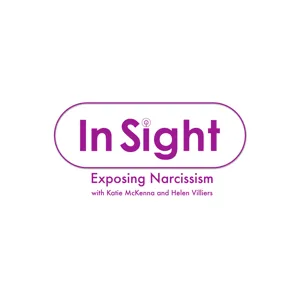Podcast Summary
Understanding Personal Self-Care Needs: Recognize self-care is unique, identify needs, challenge inner critic, and prioritize rest for overall well-being.
Self-care is unique to every individual and involves meeting personal needs to feel calm, relaxed, and connected to oneself. However, many people struggle to identify their needs due to past experiences or societal programming that prioritizes others' needs over their own. This can lead to feelings of guilt and shame when engaging in self-care activities. The inner critic can also hinder self-care by berating and punishing individuals, which may have been helpful in the past but is now harmful. Resting is an important self-care activity, yet many view it as doing nothing. It's essential to recognize that self-care is not selfish but necessary for overall well-being. To start, individuals can focus on small self-care practices and challenge their inner critic.
Practicing Self-Care for Mental and Emotional Well-Being: Recognize and prioritize self-care practices that work best for you, validating experiences of those with trauma, and understand self-care looks different for everyone to maintain overall well-being and resilience.
Self-care is about meeting one's needs in the moment without judgment and taking actions that improve mental and emotional well-being. It can involve various activities, from making a nice lunch for oneself to doing the laundry on Sundays to avoid mental load during the week. Self-care looks different for everyone, and it can change from day to day or week to week based on individual energy levels and circumstances. It's essential to recognize and prioritize self-care practices that work best for each person. The speaker also emphasized the importance of understanding and validating the experiences of those who have experienced trauma, as hypervigilance and the need for control can be common responses. Overall, self-care is a crucial aspect of maintaining overall well-being and resilience.
Understanding Parentification and Enmeshment through a Child Actor's Story: Narcissistic parents can impose their own ideas on their children's identities, leading to complex emotional experiences such as parentification and enmeshment. Using accurate terminology to describe such experiences can be validating and help start important conversations.
The discussion highlights the complexities of enmeshment and the impact of narcissistic parents on their children's lives. The speaker shares how the author's story of growing up with a narcissistic mother, who expected her to be a child actor, illustrates the concept of parentification and enmeshment. The speaker also emphasizes the importance of using accurate terminology, such as "narcissistic parent" and "abuse," to describe such experiences, which can be validating for those going through similar situations. Additionally, the speaker notes that while the author's memoir does not provide specific healing tools, the conversation between them aims to educate and provide insights on how to heal from such experiences. The speaker also acknowledges that people might find it challenging to connect with the author's story due to its extreme nature, but emphasizes that the underlying theme of a narcissistic parent imposing their own ideas on their child's identity is a common experience. The speaker concludes by emphasizing the importance of starting conversations around these topics and bringing attention to the fact that wealth or fame does not protect individuals from emotional abuse.
Recognizing Gaslighting in Father-Daughter Relationships: Understanding that covert narcissistic parents can manipulate and control, leading to emotional harm and hindering healing, is crucial. Survivors must acknowledge abuse and set healthy boundaries to reclaim power and heal.
Gaslighting and abuse come in various forms, and it's essential to recognize and name it, regardless of the perpetrator's socio-economic status. A father-daughter relationship discussed in the text serves as a reminder that covert narcissistic parents can manipulate and control their children, often making them feel ungrateful and unappreciative when they criticize or set boundaries. This dynamic can lead to long-term emotional harm and hinder the healing process. It's crucial to understand that parents, regardless of their wealth, have a responsibility to treat their children with respect and dignity. By acknowledging the abuse and setting healthy boundaries, survivors can reclaim their power and begin their healing journey.
Family dynamics shaped by golden child and scapegoat roles: Realizing unhealthy family patterns can lead to self-discovery, setting healthy boundaries, and the importance of acknowledging and addressing family issues.
The dynamics of the speaker's family were shaped by her role as the "golden child" and her sister as the "scapegoat." The speaker has come to understand that her brother's anxious behavior and controlling tendencies led to a pattern of manipulation and emotional abuse, which she has carried into her relationships. The speaker's pleasing personality and lack of self-validation made it difficult for her to recognize and challenge her brother's behavior. The speaker's realization of these patterns has led to a strained relationship with her brother and a newfound appreciation for the importance of self-care and setting healthy boundaries. Additionally, the speaker's parents' failure to acknowledge or address the family's issues has contributed to the speaker's feelings of confusion, sadness, and physical symptoms related to stress.
Navigating Complex Family Dynamics as a Golden Child: Golden children can feel pressure to please parents, leading to people-pleasing behaviors and lack of assertiveness. Confidant roles can complicate relationships further. Seek support, recognize healthy boundaries, and remember no one is responsible for saving or fixing parents.
The dynamics of dysfunctional family systems can be complex and confusing, especially for those identified as "golden children." While golden children may not experience overt abuse, they can still be deeply impacted by the system. They may feel the pressure to please their parents, leading to people-pleasing behaviors and a lack of assertiveness. In the case discussed, the daughter was left feeling bewildered and unsure of how to navigate her relationship with her parents. She was also used as a confidant by her mother, creating a triangulated dynamic that further complicated the situation. It's important to recognize that all family members are impacted by these systems, and support for those feeling lost or confused can come from various sources, including therapy and trusted friends. Ultimately, it's crucial to remember that no one is responsible for saving or fixing their parents, and seeking help and setting healthy boundaries are essential steps towards healing.
Golden Child Role in Dysfunctional Families: In dysfunctional families, children are assigned roles like golden child, used for emotional support, and their autonomy is suppressed. Setting boundaries helps protect one's autonomy and prevent exploitation.
In dysfunctional families with narcissistic parents, the children are often assigned roles such as the golden child or scapegoat. The golden child is used as a placeholder for the parent's good qualities and adoration, and is exploited for their emotional support and investment. Both parents in this discussion were using their daughter in such a way, with the mother using her as a confidant and the father as a substitute spouse. The child's autonomy is suppressed, and they are not allowed to disappoint or deviate from the parent's expectations. The golden child experience is about keeping everyone happy, but ultimately, it's not about the child's needs or interests. The child is just a placeholder for the parent's projections and desires. The listener's experience of setting boundaries and standing up for herself against her father's demands is a powerful example of how setting boundaries can help protect one's autonomy and prevent exploitation.
Daughter as Surrogate Partner in Toxic Family Dynamics: Toxic family dynamics can burden children with managing parents' emotions and behavior, leading to unhealthy relationships and detrimental effects.
The daughter in this family was put in a position of responsibility for managing her father's emotions and behavior, a role that was exploited by both parents. The mother, in an attempt to protect herself and maintain the family dynamic, confided in her daughter and expected her to intervene with her father. The father, on the other hand, was unwilling to listen to his wife and instead manipulated the situation to make the daughter the surrogate partner for his own happiness. This dynamic created a heavy burden on the daughter, who was not only responsible for managing her father's behavior but also faced criticism and shame when she attempted to assert herself and set boundaries. The situation highlights the detrimental effects of toxic family dynamics and the importance of open communication and healthy relationships.
Understanding Confusing Conversations: Some individuals use tactics like deflection, gaslighting, and word salad to avoid addressing issues and make conversations confusing. Stay focused on the main issue to effectively communicate and navigate difficult conversations.
Conversations with some individuals can be confusing and frustrating due to their use of tactics like deflection, gaslighting, and word salad. These tactics can make it difficult to have productive conversations and can lead to feelings of bewilderment and frustration. Deflection occurs when someone avoids addressing the issue at hand by introducing irrelevant information or changing the subject. Gaslighting is a form of manipulation where someone makes you question your own perception or memory of events. Word salad is a way of using meaningless or unclear language to confuse and distract. These tactics can make it challenging to resolve conflicts or come to an agreement, and can leave one feeling uncertain about what was actually discussed or accomplished. It's important to be aware of these tactics and to stay focused on the main issue in order to effectively communicate and navigate difficult conversations.
Manipulative Communication in Toxic Relationships: Recognize word salad, a manipulative communication tactic used in toxic relationships, which includes circular language, deflection, gaslighting, and projection, to maintain control and prevent focus on actual issues.
Word salad, a form of manipulative communication used in toxic relationships, is designed to confuse and distract rather than clarify or understand. It involves the use of circular language, deflection, gaslighting, and projection to tie the listener up in knots and prevent them from focusing on the actual issue at hand. This tactic is often employed by narcissistic individuals to maintain control and keep the focus on themselves, either by seeking attention or sabotaging independence. It's important to recognize this pattern of communication and differentiate it from genuine attempts to explain or make things clear. By understanding the difference, we can better navigate these complex dynamics and protect ourselves from being manipulated.
Narcissistic parents can put children in dangerous situations: Narcissistic parents can condition children to prioritize their needs, leading to codependent relationships and difficulty asserting own needs and worth.
Narcissistic parents can sabotage their children's independence and autonomy, conditioning them to stay close and serve their needs. This can lead to dangerous situations, such as a child being put in harm's way or feeling responsible for a parent's well-being. This dynamic can also set the stage for codependent relationships in the future. For example, a daughter may feel obligated to put her own needs aside to care for her father, even during important milestones like exams. This can lead to feelings of powerlessness and people-pleasing tendencies, making it difficult for her to assert her own needs and validate her own worth. The imagery of a child holding down a parent to prevent self-harm is a clear illustration of the trauma and emotional burden placed on the child. In an ideal world, parents should protect their children and prioritize their safety and well-being, not the other way around.
Struggling with prioritizing needs in toxic family dynamics: Recognizing and addressing toxic patterns can promote healthy identity development and prevent perpetuation of unhealthy family dynamics.
Focusing on oneself and one's needs, especially during significant life events like having a baby, is crucial for personal growth and identity development. However, when individuals grow up in households where self-care and autonomy are shamed, they may struggle to prioritize their needs and instead, focus on pleasing others or fixing their perceived mistakes. This can lead to a distorted sense of identity and a lack of self-worth. In the discussed scenario, the father's expectation for gratitude and recognition for small tasks, like fixing the gate, overshadowed the mother's postpartum experience and her new role as a parent. This triangulation, where the father manipulated the children against their mother, further reinforced the mother's belief that she was a problem and that her needs were insignificant. It is essential to recognize and address these patterns of behavior to promote healthy identity development and prevent the perpetuation of toxic family dynamics.
Abusive father's control hinders daughter's relationships and autonomy: Abusive behaviors can instill deep shame, hinder healthy relationships, and impact a child's sense of self and autonomy.
The weaponizing of shame and control in a family dynamic can have devastating effects on a child's autonomy, relationships, and sense of self. In the discussed scenario, a father's abusive actions towards his daughter, including kidnapping her boyfriend and spreading false rumors, instilled a deep sense of shame and responsibility for others' emotions. This, in turn, hindered her ability to form healthy relationships and pursue her own desires. The father's control extended to manipulating the social group, making it difficult for the daughter to form new relationships. The situation highlights the importance of recognizing and addressing abusive behaviors and the damaging impact they can have on a child's development.
Recognizing and validating unique experiences of trauma: Everyone's experience of trauma is unique and valid, and it's crucial to recognize and validate each other's experiences without minimizing or dismissing them, as well as prioritize self-care and healing from attachment trauma.
Both individuals in this conversation have experienced significant trauma in their family dynamic, and it's essential to recognize and validate each other's experiences without minimizing or dismissing them. The use of labels like "golden child" and "scapegoat" can be misleading and potentially harmful, as it may lead to minimizing one's own trauma or feeling guilty for not experiencing the same level of abuse as another family member. It's crucial to remember that every experience is unique and valid, and both individuals have the right to process and heal from their own traumas without being responsible for fixing or validating others. Additionally, physical symptoms like dizziness, fatigue, and headaches can be indicators of unresolved attachment trauma and the need for safety and security in one's environment.
Long-term stress effects on health and emotions: Long-term stress can weaken the immune system, causing various health issues and repressed emotions. Books like 'The Body Keeps the Score' and 'The Body Says No' can provide further understanding. Setting clear boundaries and expressing feelings are crucial for personal well-being, but demanding accountability from unwilling individuals can be challenging.
Long-term exposure to stress hormones like cortisol and adrenaline can lead to various physical health issues, including a weakened immune system. Repressed emotions and unresolved trauma can contribute to these symptoms. The body tries to express these emotions through various means, including anxiety, IBS, headaches, joint problems, and even arthritis. The speakers recommend books like "The Body Keeps the Score" and "The Body Says No" for further understanding. When dealing with difficult family dynamics, setting clear boundaries and expressing feelings can be essential for personal well-being. However, it can be challenging to demand accountability from unwilling individuals. The boundary might involve not tolerating their behavior until they acknowledge their actions and accept responsibility. Ultimately, the decision to engage with them despite their lack of apology is a personal one based on individual needs and feelings.
Setting Boundaries: Protecting Yourself: Recognize needs, ask for apologies, set limits, and validate emotions for self-protection. Distinguish needs from boundaries and practice self-compassion.
Setting boundaries is about recognizing your needs and preferences, and taking action when they are not met. This can involve asking for an apology as a need, but a boundary is the limit you set when that request is not met. Boundaries give us power and help us protect ourselves. The catalyst for setting boundaries often comes from witnessing harmful behavior towards ourselves or loved ones. It's important to recognize the difference between a need and a boundary, and to validate our own emotions and thoughts as we would towards others. This process of learning to respond to ourselves with compassion and empathy is called reparenting.
The Importance of Self-Compassion for Personal Growth: Practice self-compassion by setting boundaries, prioritizing self-care, and being kind to yourself, even if it means going against established rules. Self-care doesn't have to be grand gestures, simple activities like watching a movie or taking a walk can help.
Self-compassion is crucial for personal growth. We often criticize ourselves harshly, but it's essential to be kind and compassionate towards ourselves, just as we would to a friend. This week, Helen learned the importance of setting boundaries and prioritizing self-care, even if it meant going against the established rules of long-term relationships. Self-care doesn't have to be grand gestures like massages or expensive treatments; it can be simple activities like watching a movie, scrolling through social media, or taking a walk in the woods. Disconnecting from others and reconnecting with ourselves is a vital aspect of self-care. By prioritizing our needs and practicing self-compassion, we can improve our relationships and overall well-being. So remember, be kind to yourself, set boundaries, and make time for self-care, no matter what form it takes.




